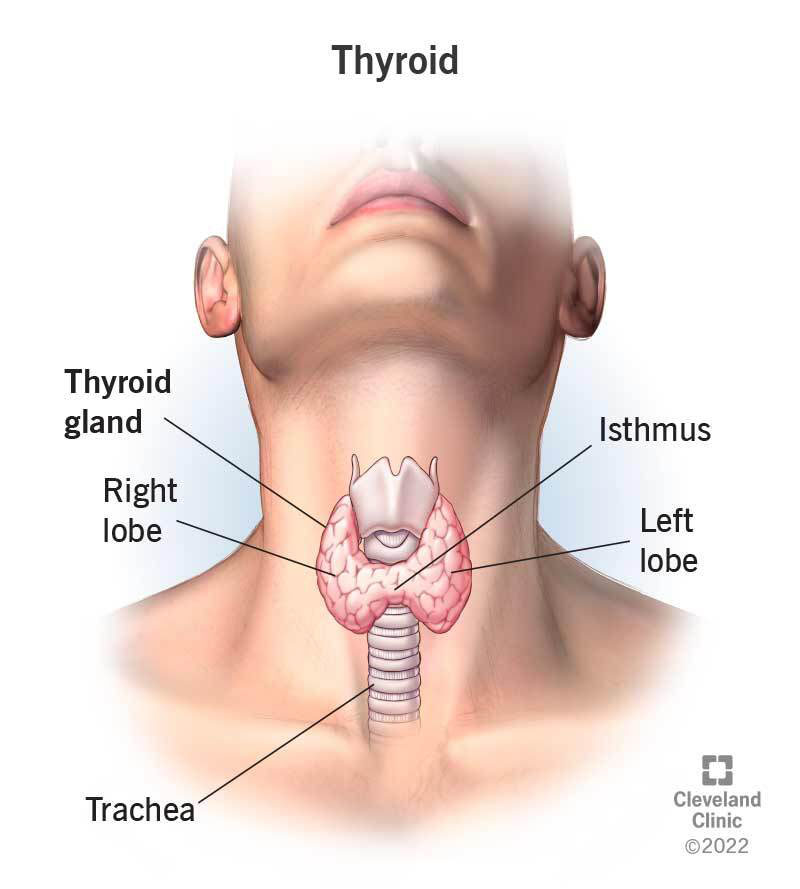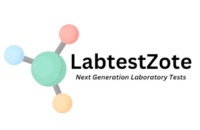Introduction: What are thyroid function tests?
Thyroid function tests (TFTs) are a set of laboratory tests used to evaluate the functioning of the thyroid gland. The thyroid gland plays a crucial role in regulating metabolism, growth, and development. These tests help in diagnosing and monitoring various thyroid disorders, including hyperthyroidism and hypothyroidism.

Components of the Thyroid Function Tests Profile:
Thyroid function tests are a set of related tests carried out together to help diagnose thyroid disease. These typically include the following components:
1. Thyroid-stimulating hormone (TSH):
TSH is produced by the pituitary gland and stimulates the thyroid gland to produce thyroid hormones. Elevated TSH levels indicate hypothyroidism, while decreased levels may suggest hyperthyroidism.
2. Free Thyroxine (FT4):
FT4 is the inactive form of thyroid hormone circulating in the blood. It helps regulate metabolism. Abnormal FT4 levels can indicate thyroid dysfunction.
3. Total or Free Triiodothyronine (T3):
T3 is another thyroid hormone that plays a vital role in metabolism and growth. Elevated or reduced T3 levels can indicate hyperthyroidism or hypothyroidism, respectively.
4. Thyroid Antibodies:
Antibodies like anti-thyroid peroxidase (TPOAb) and anti-thyroglobulin (TgAb) are tested to identify autoimmune thyroid diseases such as Hashimoto’s thyroiditis and Graves’ disease.
Why are the thyroid function tests ordered?
Thyroid function tests are indicated in various scenarios, including:
- Evaluation of thyroid enlargement/ swelling – goiter
- Evaluation of suspected thyroid disorders like hyperthyroidism or hypothyroidism.
- Monitoring thyroid function in patients with known thyroid diseases, post thyroidectomy or radiation treatment.
- Assessing thyroid function during pregnancy, as thyroid dysfunction can affect fetal development.
- Screening for thyroid disorders in high-risk individuals, such as those with a family history of thyroid disease or autoimmune disorders.
- As part of the screening of newborns against Congenital Hypothyroidism
- Assessment of infertility especially in women.
- Evaluation of unexplained weight changes.
- Persons with a family history of thyroid diseases.
Sample Type
Thyroid function tests are performed on whole blood, typically drawn for the fore arm. Cord blood may be used for newborn screening. About 3ml is adequate.
Preparation/Instructions Before Testing:
To ensure accurate results, certain preparations and instructions are necessary before thyroid function testing:
– Some medications, such as thyroid medications, steroids, and iodine-containing drugs, may interfere with test results. Inform your healthcare provider about any medications you are taking.
– Fasting is usually not required for thyroid function tests.
– However, specific instructions may vary depending on the laboratory or specific tests ordered. Follow your healthcare provider’s instructions carefully.
Reference values for Thyroid function Tests
Please note the values may vary with demographic as well as physiologic factors.
| Thyroid Function Test | Reference Range |
|---|---|
| Thyroid-Stimulating Hormone (TSH) | 0.4 – 4.0 mIU/L |
| Free Thyroxine (FT4) | 0.8 – 1.8 ng/dL or 10 – 23 pmol/L |
| Total Thyroxine (TT4) | 4.5 – 12.0 µg/dL or 58 – 155 nmol/L |
| Free Triiodothyronine (FT3) | 2.3 – 4.2 pg/mL or 3.5 – 6.5 pmol/L |
| Total Triiodothyronine (TT3) | 80 – 200 ng/dL or 1.2 – 3.1 nmol/L |
Patterns Of Thyroid Hormone Disturbances
The typical disturbances of thyroid hormones are shown below. However, specific cases may vary and correlation with clinical and radiological findings as well as other laboratory tests is essential
| Thyroid Hormone | Primary Hyperthyroidism | Secondary Hyperthyroidism | Tertiary Hyperthyroidism | Primary Hypothyroidism | Secondary Hypothyroidism | Tertiary Hypothyroidism |
|---|---|---|---|---|---|---|
| Thyroid-Stimulating Hormone (TSH) | ↓ | ↑ | ↑ | ↑ | ↓ | ↓ |
| Free Triiodothyronine (FT3) | ↑ | ↑ | ↑ | ↓ | ↓ | ↓ |
| Free Thyroxine (FT4) | ↑ | ↑ | ↑ | ↓ | ↓ | ↓ |
Thyroid Antibodies in Thyroid Function Tests
Expanded panel of thyroid test may include the following antithyroid antibodies :-
1. Thyroid peroxidase antibodies (TPO antibodies): These are the most common antithyroid antibodies and are found in the majority of patients with autoimmune thyroid diseases such as Hashimoto’s thyroiditis and Graves’ disease.
2. Thyroglobulin antibodies (TG antibodies): These antibodies target thyroglobulin, a protein involved in the production of thyroid hormones. Elevated levels of TG antibodies are often seen in autoimmune thyroid diseases.
3. Thyroid-stimulating hormone receptor antibodies (TSH receptor antibodies): These antibodies bind to the TSH receptor on thyroid cells and can stimulate or block the receptor’s function. Elevated levels of TSH receptor antibodies are associated with Graves’ disease.
4. Thyroid-stimulating immunoglobulins (TSI): These antibodies are a specific type of TSH receptor antibody that stimulate the receptor, leading to increased production of thyroid hormones. TSI is primarily found in patients with Graves’ disease.
5. Thyroid-binding inhibitory immunoglobulins (TBII): These antibodies block the TSH receptor, leading to decreased production of thyroid hormones. TBII is also associated with Graves’ disease.
It is important to note that the presence of antithyroid antibodies does not necessarily indicate a specific disease but rather suggests an autoimmune process affecting the thyroid gland.
Interpretation and Additional Testing:
Interpreting thyroid function test results requires considering the individual’s symptoms, medical history, and other factors.
Sometimes only the TSH level is elevated – This is usually indicative of subclinical hypothyroidism.
It is important to note that interpretation may vary based on individual cases, and consultation with a healthcare professional is essential for accurate diagnosis and treatment.
Where are thyroid function tests done in Kenya?
These tests are widely available in urban centers as most level 4-6 hospitals , both public and private carryout the tests. The turn around time is usually around 4 hours to a few days depending on the lab and urgency.
You can find a good laboratory near you in our directory here
What’s is the cost of thyroid function tests
These set of tests costs from KES 2,000 to 6,000 depending on facility and location. Most insurances cater for the cost of thyroid function tests.
We publish regular laboratory prices survey, find the cost of common laboratory tests here
That’s A wrap!
Thyroid function tests are valuable tools for assessing thyroid gland function and diagnosing thyroid disorders. Understanding the components of the profile, indications, preparation, interpretation, and additional testing helps healthcare professionals make informed decisions and provide appropriate treatment. Regular monitoring and follow-up testing are crucial for managing thyroid conditions and optimizing you health.
Laboratory Tests in this post
-
TSH Receptor Antibodies (TrAb)KSh2,550
-
Thyroxine, T4 (Serum)KSh1,855
-
Thyroid Function Tests (TFTs)KSh3,500
-
Free T3 Test, SerumKSh2,355
-
Thyroid Stimulating Hormone (TSH) Level, SerumKSh1,675
-
Thyroid Stimulating Hormone (TSH), Cord BloodKSh1,875
